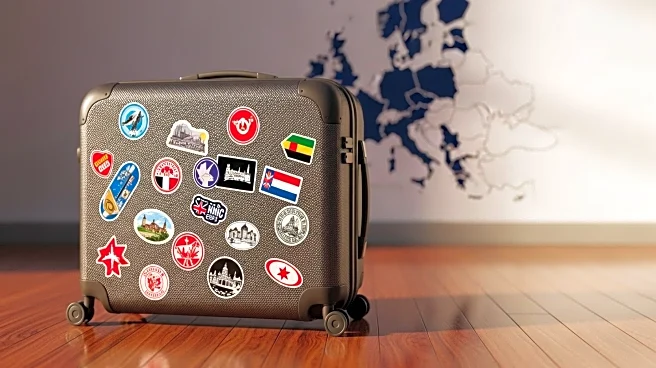What's Happening?
In 2025, long-haul travel has seen a significant resurgence, with travelers from the U.S. and China returning to Europe in large numbers. This trend marks a departure from the 'revenge travel' phenomenon that followed the COVID-19 pandemic, as travelers now prioritize value and service. Northern European cities such as London, Berlin, and Stockholm have experienced increased demand, driven by travelers seeking to escape the heat in Southern Europe. This shift has been beneficial for cities that combine climate-driven demand with strong operational performance in service and guest engagement.
Why It's Important?
The rebound in long-haul travel is crucial for the European tourism industry, which relies heavily on international visitors. The increase in U.S. travelers is projected to grow by 10%, providing a significant boost to the tourism economies of major European cities. This trend underscores the importance of operational excellence in hospitality, as travelers are more discerning and value-conscious. The shift towards Northern European destinations also highlights the impact of climate change on travel patterns, as tourists seek cooler climates.
What's Next?
As the travel industry adapts to these changes, hotels and tourism operators will need to focus on maintaining high standards of service and operational efficiency to meet the evolving expectations of travelers. The continued growth of long-haul travel will likely encourage further investment in infrastructure and services in popular destinations. Additionally, the industry may see increased collaboration between tourism boards and hospitality providers to capitalize on the growing demand for Northern European destinations.












